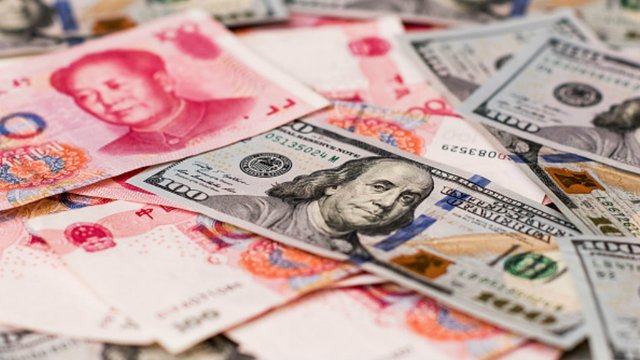



The last thing that a troubled global economy now needs is a full-blown currency war where all countries try to gain a competitive advantage through policies aimed at cheapening their currencies. Yet in the age of Trump, it is difficult to see how the world will avoid such a war.
If the experience with currency wars in the 1930s offers any lessons, it is that such wars can be very harmful to global prosperity by exacerbating "beggar-thy-neighbor" policies.
While there are several reasons to believe that the world is drifting toward a currency war, among the most important would appear to be the basic contradiction between the Trump administration’s trade and budget policies.
A principal objective of President Trump’s "America First" trade policy is to drastically reduce the U.S. trade deficit with a view toward bringing manufacturing jobs back home. However, this policy sits at odds with a budget policy consisting of large unfunded tax cuts and big public spending increases.
Such a budget policy risks causing the U.S. budget deficit to balloon, and it also risks taking us back to the twin budget and trade deficit problems of the Reagan years.
One indication of the inconsistency between the Trump trade and budget policies is the fact that the U.S. trade deficit has kept rising since President Trump assumed office and is now running at an all-time-high rate of close to $1 trillion a year.
Another indication is that over the past year, the U.S. dollar has increased in value by around 10 percent. It has done so as an expansive U.S. budget policy has forced the Federal Reserve to raise interest rates to keep inflation in check.
This has had the effect of making our exports less competitive and of cheapening our imports, which is hardly consistent with the goal of reducing the trade deficit.
Another reason for fearing that we are heading toward a global currency war is that the world economic recovery is becoming increasingly less synchronized. At a time that the U.S. economy is being boosted by a large tax cut, other important parts of the global economy are stuttering due to idiosyncratic reasons of their own.
This risks having other countries maintaining very loose monetary policies as the Federal Reserve continues to hike U.S. interest rates, which will drive the U.S. dollar ever higher.
One major area of the global economy that looks set to weaken is that of the European economy where troubles are coming not as single spies but as battalions.
The United Kingdom risks soon crashing out of Europe without a Brexit deal; Italy’s populist government appears to be on destructive collision course over its budget with its European partners that could constitute an existential threat to the euro; and Germany now faces a prolonged period of political uncertainty as Chancellor Angela Merkel prepares to make her exit from the European political stage.
As suggested by the recent move lower by the Chinese currency, a more immediate trigger for a global currency war is likely to be a further weakening of the yuan.
This would seem to be especially the case in the context of the ongoing U.S.-China trade war and the Trump administration’s repeated warnings to China not to manipulate its currency.
Sadly, there is every reason to think that China’s currency will continue to weaken against the dollar in the period ahead. For one, Chinese monetary policy is likely to be loosened to support a Chinese economy that is being buffeted by falling domestic stock prices, the bursting of a credit bubble and rising U.S. import tariffs.
For another, with the U.S. dollar appreciating against most other world currencies, the Chinese government has little option but to allow its currency to weaken against the dollar in an effort to prevent China from losing international competitiveness along with the United States.
Averting a world currency war would be in everyone’s economic interest. However, that would require better international policy coordination that only U.S. leadership can provide.
A good place to start would be for the Trump administration to address the basic contradiction between U.S. trade and budget policies that are exacerbating global external imbalances and are putting undue upward pressure on the U.S. dollar.
Judging by the "America First" rhetoric that continues to spew out of the White House, I am not holding my breath for this to happen anytime soon.
Desmond Lachman is a resident fellow at the American Enterprise Institute. He was formerly a deputy director in the International Monetary Fund's Policy Development and Review Department and the chief emerging market economic strategist at Salomon Smith Barney.